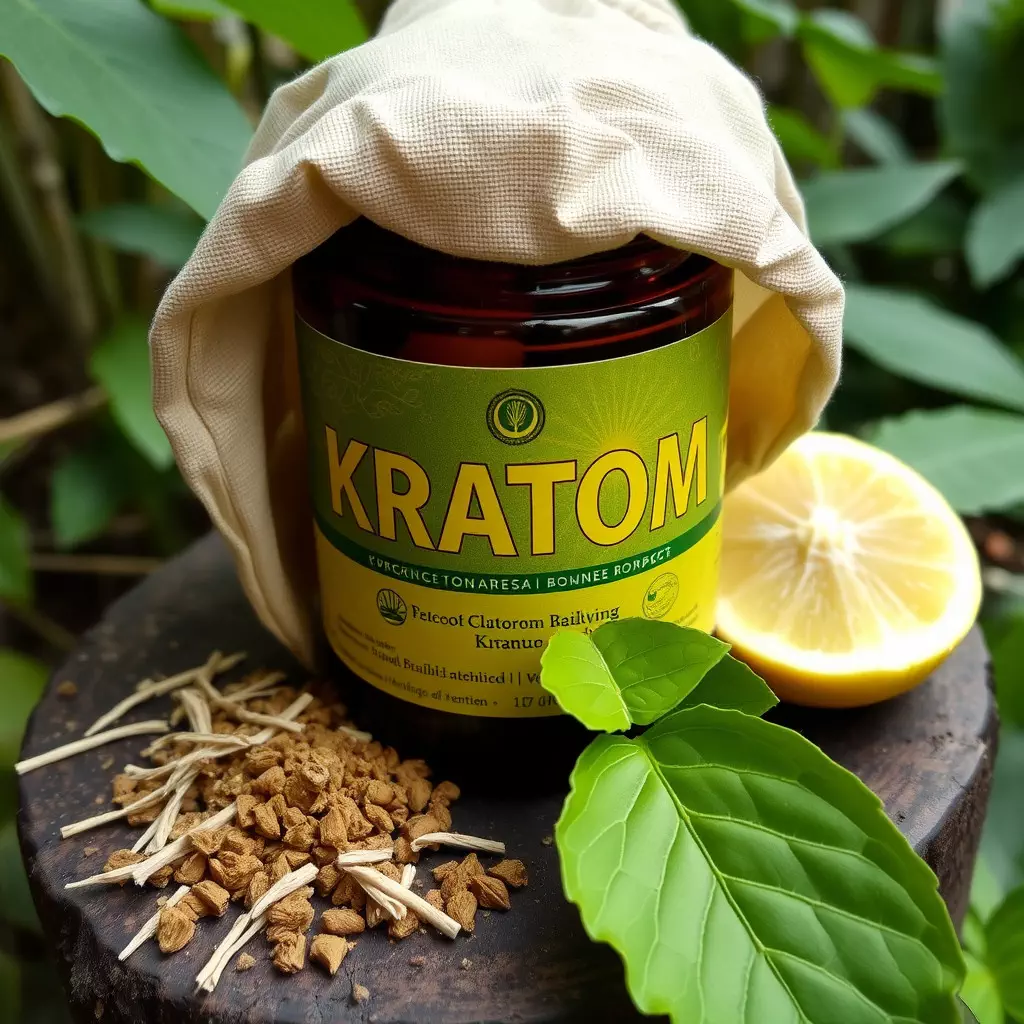In Colorado, the legality of kratom, derived from the Mitragyna speciosa tree and known for its stimulant and sedative properties, remains under active debate and subject to change as health authorities and lawmakers evaluate its impact. Athletes in the state should stay informed on its legal status due to its potential influence on mental clarity and focus, which could enhance performance through interactions with brain receptors. While currently legal at the federal level, kratom's legality varies by state, necessitating caution for athletes who might consider it as a supplement. The scientific community continues to research its effects, but the lack of long-term clinical studies warrants a careful and cautious approach to its use in athletic contexts. Athletes interested in exploring kratom should consult with healthcare professionals to navigate the evolving legal landscape and understand the ethical considerations within sports, particularly in Colorado where the legal dynamics are particularly active. This is critical for responsible use that aligns with training objectives and adheres to anti-doping policies while considering potential side effects and the risk of dependency.
Exploring the intersection of natural supplements and athletic performance, this article sheds light on the controversial herb kratom, particularly within the legal confines of Colorado. Delving into its potential effects on mental clarity and focus, we examine how athletes can strategically incorporate kratom into their training and competition regimes to optimize performance. As we navigate the complexities of kratom’s legality and its impact on cognitive function, it becomes clear that understanding this botanical’s role is crucial for those seeking an edge in their sport.
- Navigating the Legal Landscape of Kratom in Colorado and Its Role in Athletic Mental Clarity
- Understanding Kratom's Impact on Focus and Performance in Athletes
- Strategic Use of Kratom for Enhanced Concentration in Sports Training and Competition
Navigating the Legal Landscape of Kratom in Colorado and Its Role in Athletic Mental Clarity

In Colorado, the legality of kratom has been a subject of debate and legislative action. As of recent updates, kratom is legal within the state’s borders, yet its status remains under scrutiny by both health officials and lawmakers. Athletes seeking to incorporate kratom into their regimen must stay informed on the evolving legal landscape, as local and state regulations can change. It’s crucial for athletes to verify the current laws before considering its use, as federal guidelines do not uniformly govern kratom across the United States.
Kratom, derived from the leaves of the Mitragyna speciosa tree native to Southeast Asia, has been traditionally used for its stimulant and sedative effects. For athletes striving for mental clarity and focus, kratom is believed by some to offer cognitive benefits that may enhance performance. The alkaloids present in kratom leaves are thought to interact with the brain’s receptors, potentially influencing mood and energy levels. However, the scientific community continues to explore its effects, and any use of kratom should be approached with caution. Athletes interested in this substance must weigh the potential mental advantages against the legal implications and the lack of long-term clinical studies on its impact on athletic performance. It’s a nuanced issue that requires careful consideration of both the empirical evidence and the regulatory framework governing its use.
Understanding Kratom's Impact on Focus and Performance in Athletes

Kratom, a plant from Southeast Asia with the botanical name Mitragyna speciosa, has garnered attention within athletic communities for its potential impact on focus and performance. As athletes seek to enhance their cognitive and physical capabilities, understanding how kratom might affect them is crucial. The active compounds found in kratom leaves, known as mitragynine and 7-hydroxymitragynine, are believed to interact with the body’s opioid receptors, which can influence mood, pain perception, and alertness. For athletes in Colorado, where the legal status of kratom is subject to change—currently it is legal at the federal level but subject to local regulations—incorporating this substance into training or competition must be approached with caution and informed by current research.
Studies suggest that kratom may improve focus and mental clarity, which can be beneficial for athletes during intense training sessions or high-stakes competitions. However, the effects of kratom can vary greatly depending on dosage, individual physiology, and the specific strain used. It’s important for athletes to consult with healthcare professionals before integrating kratom into their routine, as the substance’s effects and long-term implications are still under investigation. Additionally, the potential for kratom to enhance performance must be weighed against its side effects, which can include drowsiness, nausea, or dependency issues. As such, while some athletes may find positive effects on their focus and endurance, the use of kratom in sports remains a topic of debate and requires careful consideration within the context of legal compliance and ethical competition standards.
Strategic Use of Kratom for Enhanced Concentration in Sports Training and Competition

When athletes seek to enhance their mental clarity and focus during rigorous sports training and competition, they often explore various supplements and natural products. Among these, kratom has gained attention for its potential cognitive-enhancing properties. Kratom, derived from the leaves of the Mitragyna speciosa tree native to Southeast Asia, contains alkaloids that may influence brain function. While the legal status of kratom varies across different regions, with kratom being legal in Colorado as per current regulations, it’s crucial for athletes to understand its implications within the context of sports performance and the rules governing their sport.
Incorporating kratom into an athlete’s regimen should be approached with strategic consideration. The alkaloids found in kratom, such as mitragynine and 7-hydroxymitragynine, are known to affect the brain’s opioid receptors, which can lead to increased alertness, reduced fatigue, and heightened focus. These effects can be beneficial for athletes looking to maintain concentration over extended periods of training or during high-stakes competitions. However, the use of kratom must be carefully managed to avoid any performance enhancement issues that might conflict with sporting regulations. Athletes considering kratom should consult with their trainers, coaches, and healthcare providers to ensure its use aligns with their training goals, is compliant with anti-doping policies, and does not interfere with other aspects of their health and well-being. Additionally, the dosage and timing of kratom intake must be optimized for individual needs to maximize cognitive benefits while minimizing potential adverse effects. With responsible use, kratom may serve as a tool for athletes seeking enhanced mental acuity and sustained concentration during their athletic pursuits.
In Colorado, where the legality of kratom is a subject of ongoing discourse, athletes are increasingly exploring its potential benefits for mental clarity and focus. The evidence suggests that when used judiciously, kratom can contribute positively to an athlete’s performance, offering enhanced concentration during rigorous training and competitive events. It’s crucial for sports enthusiasts to remain informed about the evolving legal status of kratom in their jurisdictions, as well as its implications for mental acuity and focus. As research continues to unfold, it is clear that kratom holds a promising role in the athletic realm, provided it is employed within regulatory boundaries and with a full understanding of its effects on individual performance and mental state. Athletes should always prioritize compliance with local laws and consider consulting healthcare professionals before integrating kratom into their regimen for optimal results and safety.






